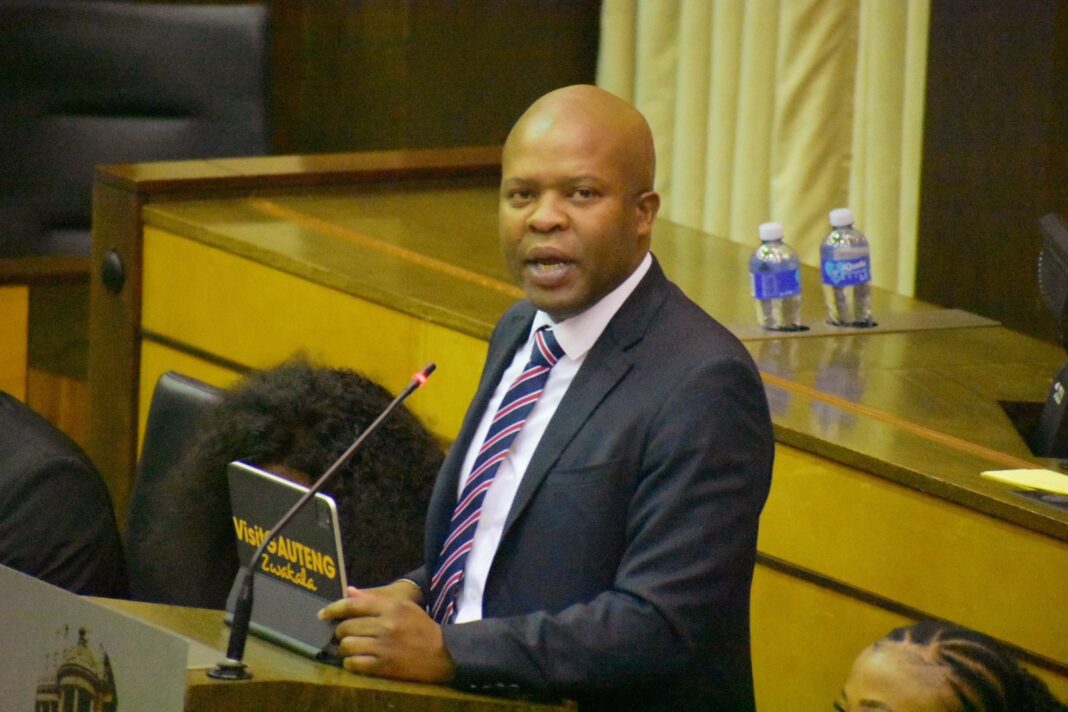By Johnathan Paoli
Fiscal discipline is the cornerstone of Gauteng’s economic strategy, according to finance and economic development MEC Lebogang Maile.
Delivering the province’s Medium-Term Budget Policy Statement (MTBPS) on Tuesday, the MEC called for budget reprioritisation, efficiency gains and strategic trade-offs to address the province’s constrained revenue streams.
He said the government’s focus would be on fiscal discipline, efficient resource allocation and innovative partnerships to bolster sustainability and inclusive growth.
“Fiscal discipline requires that governments maintain fiscal positions that are consistent with macroeconomic stability and sustained economic growth,” he said.
Maile urged provincial departments to explore alternative funding sources, including public-private partnerships, donor contributions and development finance, to enhance fiscal sustainability.
“Public-private partnerships will be key not only for delivering infrastructure but also for stimulating the economy and creating jobs,” Maile said.
He underlined the importance of leveraging these partnerships to fund critical projects efficiently and sustainably.
The MEC announced that the 2024/25 financial year would see a R2.1 billion increase in the provincial budget.
Key allocations include R600 million for health, R300 million for education and R70 million for social development, with additional funds for environmental and infrastructure development initiatives.
He announced that as part of enhancing capacity, R8.3 million was allocated for the establishment of the department of environment, of which R2.4 million and R5.8 million was for the establishment of the office of the head of department and the office of the MEC, respectively.
Maile assured residents that no jobs would be cut in essential sectors such as education and health, despite budget constraints, and said he had turned his attention to empowering marginalised communities and small enterprises.
By addressing barriers like limited access to finance and inadequate infrastructure, the province aimed to unlock the potential of township economies in line with the Township Economic Development Act.
He praised the province for spearheading procurement reforms with the development of a Transformative Procurement Strategy and the newly gazetted Public Procurement Act, enhancing preferential procurement for designated groups and driving socio-economic transformation.
Recognising the financial struggles of municipalities, Maile said the provincial government was committed to supporting enhanced revenue collection and debt management, with the recent launch of the Eskom debt-relief programme. It would also help ensure the continuation of essential services like electricity and water.
Maile also highlighted the conclusion of the e-toll saga, with Gauteng committing to cover 30% of the debt settlement costs, saying this resolution paved the way for improved provincial fiscal management.
He reiterated the government’s responsibility to future generations and its resolve to maintain Gauteng’s status as economic hub of South African.
INSIDE POLITICS

